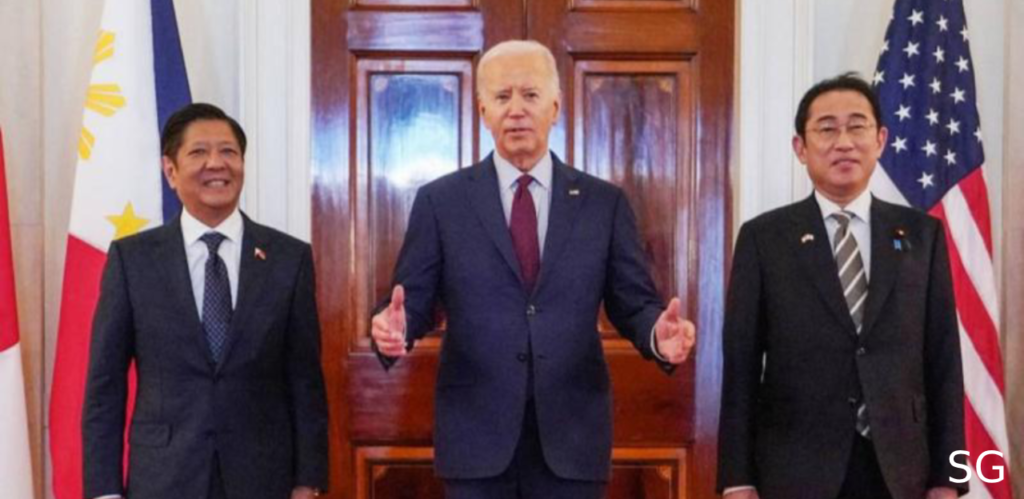Table of Contents

Japan-Philippines-U.S. Pledge to Deepen Trilateral Cooperation Amid Rising Tensions in Asia
Leaders Convene for Virtual Meeting
Japanese Prime Minister Shigeru Ishiba, Philippine President Ferdinand Marcos Jr., and outgoing U.S. President Joe Biden held a virtual meeting on Monday to address growing regional tensions. The leaders agreed to strengthen economic, maritime, and technological collaboration.
Building on Previous Summit
This meeting followed the landmark summit in Washington last April, where the three leaders committed to upholding international law and ensuring regional stability.
Outgoing President Biden expressed optimism that the incoming U.S. administration would maintain the trilateral partnership. “Our countries have an interest in continuing this partnership and institutionalizing our cooperation across governments so that it is built to last,” he said.
Addressing Regional Tensions
The discussions focused on China’s activities in the South China Sea, which the leaders characterized as “dangerous and unlawful.” The White House emphasized the importance of coordination in the Indo-Pacific, while Japan’s foreign ministry condemned unilateral actions to alter the status quo in regional waters.
Cooperation in Defense and Diplomacy
President Marcos highlighted the commitment to diplomatic progress. Biden also praised Marcos for his measured approach to China’s assertive actions in the South China Sea.
Japan and the Philippines recently ratified a military agreement facilitating joint exercises, reflecting their deepening security ties. In 2023, the three nations’ coast guards conducted joint drills, further solidifying their defense cooperation.
South China Sea Disputes
The South China Sea remains a contentious area. A 2016 international tribunal ruling invalidated Beijing’s sweeping territorial claims, a decision China has refused to recognize. Tensions have risen due to repeated confrontations between Chinese and Philippine coast guards in the disputed waters.
The trilateral meeting underscored a shared commitment to maintaining stability and the rules-based international order in the region.